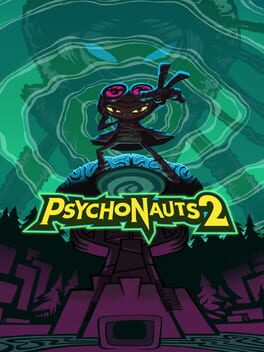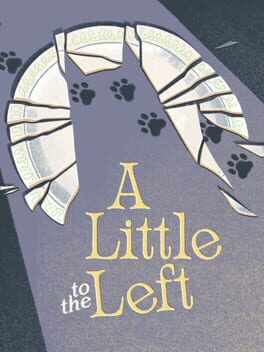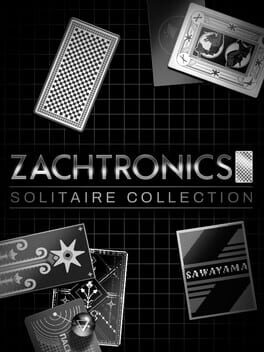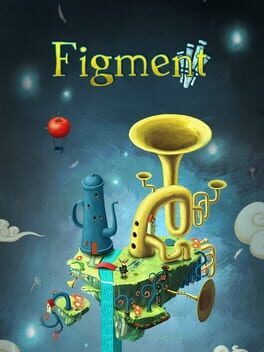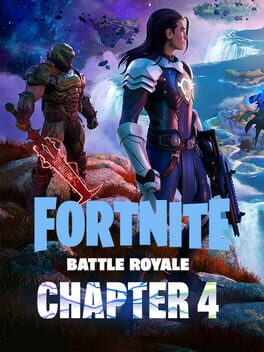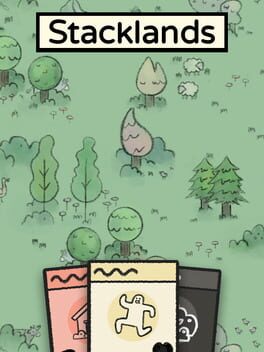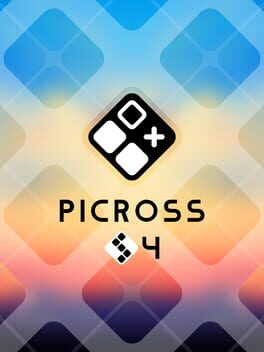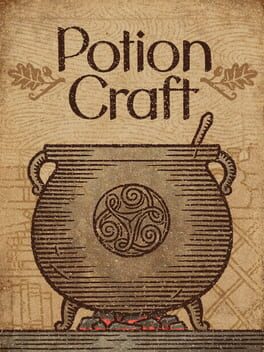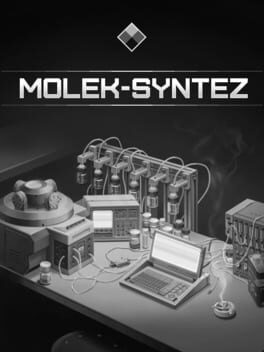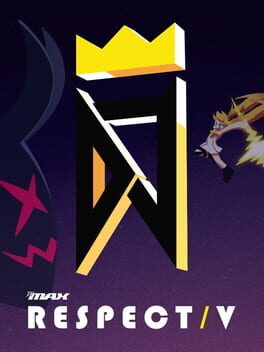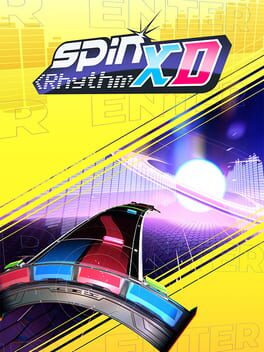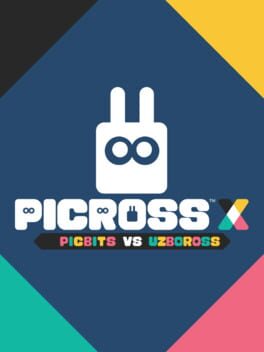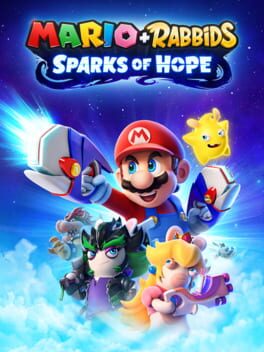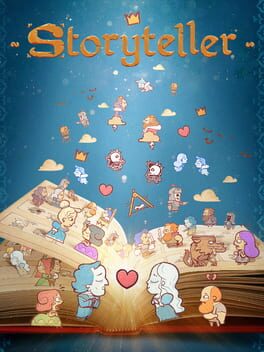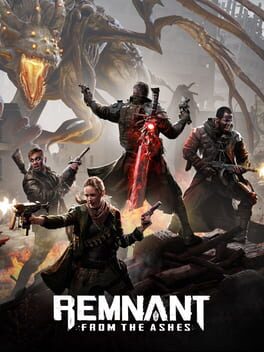HGRezende
2021
Psychonauts 2 follows the adventure and platforming mix of the first game, but while in the first I consider the adventure roots stronger, in the new entry I'd say the platforming is a lot more robust and the adventure portion is brought back in the strong narrative and less in the gameplay.
Basically everything in your moveset is better this time around and the levels have a much more fluid pacing even with a lot of narrative going on. You can notice how they wanted to interrupt you less when even the emotional baggage animation was reduced for the sequel.
And even though it feels like the game interrupts you less, the narrative is still such a strong part of this experience, that I think playing the first game is a must to fully enjoy what is happening here. Also, I love how they kept the clairvoyance skill showing how people see you, because it is one of my favorite "hidden storytelling" points.
After so many years it is easy to imagine expectations for a sequel are insurmountable, but with levels that are a joy to play and a narrative that weaves such a big number of threads, Psychonauts 2 delivers a masterpiece that absolutely stuck the landing.
Basically everything in your moveset is better this time around and the levels have a much more fluid pacing even with a lot of narrative going on. You can notice how they wanted to interrupt you less when even the emotional baggage animation was reduced for the sequel.
And even though it feels like the game interrupts you less, the narrative is still such a strong part of this experience, that I think playing the first game is a must to fully enjoy what is happening here. Also, I love how they kept the clairvoyance skill showing how people see you, because it is one of my favorite "hidden storytelling" points.
After so many years it is easy to imagine expectations for a sequel are insurmountable, but with levels that are a joy to play and a narrative that weaves such a big number of threads, Psychonauts 2 delivers a masterpiece that absolutely stuck the landing.
2022
Trying to organize my thoughts about the game is harder than organizing the puzzles in it.
In general I think the puzzles are fun to solve, and there are some good highlights around chapter 3, but it also has some big lows with puzzles with pixel perfect positioning (I'm looking at the tomato sauce cans) and just weird stuff when divining the developers intent becomes the bigger puzzle.
I could live without almost everything in chapter 5. But I guess if you really like cats the last sections works best, didn't do much for me though.
You could say the perfectionist inside me loves the concept of A Little to the Left, but then it also has trouble fitting everything neatly when there are some rough edges and extra bits that don't feel like they belong here.
In general I think the puzzles are fun to solve, and there are some good highlights around chapter 3, but it also has some big lows with puzzles with pixel perfect positioning (I'm looking at the tomato sauce cans) and just weird stuff when divining the developers intent becomes the bigger puzzle.
I could live without almost everything in chapter 5. But I guess if you really like cats the last sections works best, didn't do much for me though.
You could say the perfectionist inside me loves the concept of A Little to the Left, but then it also has trouble fitting everything neatly when there are some rough edges and extra bits that don't feel like they belong here.
I had played most of the variants while playing Zachtronics games, but there were still a few games I skipped and there was a brand new one so I had to try this.
Fortune's Foundation which is the new variant is ruthless, very very hard, but extremely satisfying to get a win. Sawayama (from Last Call BBS) and Shenzhen (from Shenzhen I/O) are among my other most liked, they are similar to the usual "Windows" patience, but they work really well.
I enjoyed Sigmar's Garden (from Opus Magnum) more in the past, here it doesn't compare too favorably I think, but it is the most unique one. Cribbage (from Möbius Front) is one I didn't play, and I didn't really vibe with it, but it is also one of the more unique takes.
Kabufuda (from Eliza), Cluj (from Molek-Syntez) and Proletariat (from Exapunks) are all fun too, if a bit similar to each other, they still have their own twists.
Even if you played all the past games, Fortune's Foundation is very much worth it, and having all the options in the same package also feels good when you can take a break and relax on the easier ones, instead of diving into an intense round of harder variants.
Fortune's Foundation which is the new variant is ruthless, very very hard, but extremely satisfying to get a win. Sawayama (from Last Call BBS) and Shenzhen (from Shenzhen I/O) are among my other most liked, they are similar to the usual "Windows" patience, but they work really well.
I enjoyed Sigmar's Garden (from Opus Magnum) more in the past, here it doesn't compare too favorably I think, but it is the most unique one. Cribbage (from Möbius Front) is one I didn't play, and I didn't really vibe with it, but it is also one of the more unique takes.
Kabufuda (from Eliza), Cluj (from Molek-Syntez) and Proletariat (from Exapunks) are all fun too, if a bit similar to each other, they still have their own twists.
Even if you played all the past games, Fortune's Foundation is very much worth it, and having all the options in the same package also feels good when you can take a break and relax on the easier ones, instead of diving into an intense round of harder variants.
2017
One of those games where there is nothing really wrong, but there is this feeling something isn't quite right and you end up with a shallow and unrewarding experience.
I feel like the puzzles are simplistic to the point in which you can see the solution at a glance, but then the game can't hide the chore of actually executing the solution, feels like a lot of walking for something you figured out instantly.
One of the things it has going for it is the attempt to be a musical. It feels like it could shine more if the gameplay actually supported it more. Musically and visually the game is in general very pleasant, it just can't carry the whole experience.
I feel like the puzzles are simplistic to the point in which you can see the solution at a glance, but then the game can't hide the chore of actually executing the solution, feels like a lot of walking for something you figured out instantly.
One of the things it has going for it is the attempt to be a musical. It feels like it could shine more if the gameplay actually supported it more. Musically and visually the game is in general very pleasant, it just can't carry the whole experience.
2022
After thinking the Chapter 3 map was very lackluster, I'm glad this new Chapter started sooner. The map felt immediately more interesting and it can only get better in future seasons.
Augments are actually fun, and Slap Juice is a great addition too, I also love the Ex-Caliber. I drifted mid season but I think not many were pleased with Hammer, Deku Smash and other items being very powerful or broken, but otherwise I had a lot of fun and Doom Slayer is a great skin.
Augments are actually fun, and Slap Juice is a great addition too, I also love the Ex-Caliber. I drifted mid season but I think not many were pleased with Hammer, Deku Smash and other items being very powerful or broken, but otherwise I had a lot of fun and Doom Slayer is a great skin.
2022
Great roguelikes know your best weapon to advance is knowledge and Stacklands very much uses the element of discovery in its favor. Each new idea on how to mix and match the resource cards at your disposal makes things you struggled with at the start become merely a simple step towards a bigger and more complex future.
Even though I enjoy the build up of knowledge, I get a lot of friction from how some things progress. For example building a huge stack of sheds to increase the card limit, it isn't hard but it feels annoying.
Discovering how Stacklands works is great and I enjoyed exploring some of the first steps, unlocking all the packs and many ideas, but sometimes the chaotic nature of creatures and some more repetitive chores to keep the board in working condition do exhaust me a bit, so I'm moving on.
Even though I enjoy the build up of knowledge, I get a lot of friction from how some things progress. For example building a huge stack of sheds to increase the card limit, it isn't hard but it feels annoying.
Discovering how Stacklands works is great and I enjoyed exploring some of the first steps, unlocking all the packs and many ideas, but sometimes the chaotic nature of creatures and some more repetitive chores to keep the board in working condition do exhaust me a bit, so I'm moving on.
2020
2021
The unique mechanics of crafting a potion in this game are what I love the most and what leaves such a strong impression for me. Seeing the path each ingredient traces over the alchemy map, the discovery of new effects, it is something truly special and for that alone I think it is worth to check out this game. But then you add everything else and it is just not quite there.
It feels like even though they released 1.0 the game is not quite ready, and the extensive roadmap they published shortly after release kind of reinforces the sentiment. Haggling with merchants and clients becomes more annoying than fun very early and getting ingredients rely a lot on RNG.
The Alchemy Machine is an idea that has potential, but right now it just feels like a time/resource sink that isn't fun. It starts by already taking a long time until the merchant decides to sell you parts and recipes for it, and then it requires a good number of crazy potions that while adding challenge to figure out how to brew, it also introduces problems by requiring you to waste so many ingredients and time to ever use again. It feels exaggerated to the point you don't want to interact with it.
As I opened the review with, I love the act of crafting the potion, but then the game starts to demand a lot of time and it just feels like you are spinning your wheels and not making meaningful progress, there is a constant feeling that you are ready for the next thing and the game holds you into the same place for some time. I'll definitely be checking out further updates and I think it is very much worth it to put a few hours into it just because the crafting is so unique, but right now it demands too much to see everything it has to offer.
It feels like even though they released 1.0 the game is not quite ready, and the extensive roadmap they published shortly after release kind of reinforces the sentiment. Haggling with merchants and clients becomes more annoying than fun very early and getting ingredients rely a lot on RNG.
The Alchemy Machine is an idea that has potential, but right now it just feels like a time/resource sink that isn't fun. It starts by already taking a long time until the merchant decides to sell you parts and recipes for it, and then it requires a good number of crazy potions that while adding challenge to figure out how to brew, it also introduces problems by requiring you to waste so many ingredients and time to ever use again. It feels exaggerated to the point you don't want to interact with it.
As I opened the review with, I love the act of crafting the potion, but then the game starts to demand a lot of time and it just feels like you are spinning your wheels and not making meaningful progress, there is a constant feeling that you are ready for the next thing and the game holds you into the same place for some time. I'll definitely be checking out further updates and I think it is very much worth it to put a few hours into it just because the crafting is so unique, but right now it demands too much to see everything it has to offer.
2019
Molek-Syntez is another of the more visual games from Zachtronics, that while still using some kind of programming logic are less about coding and use a set of instructions that are more approachable to someone with no programming experience.
It is hard for me to not compare this game to Opus Magnum, even though they are trying different things, overall I can't help but feel that it doesn't reach the same levels in both presentation or gameplay. It still provides a solid Zachtronics experience, with lots of opportunities to optimize your solutions, just don't expect gifs that are as mesmerizing as Opus Magnum.
It is hard for me to not compare this game to Opus Magnum, even though they are trying different things, overall I can't help but feel that it doesn't reach the same levels in both presentation or gameplay. It still provides a solid Zachtronics experience, with lots of opportunities to optimize your solutions, just don't expect gifs that are as mesmerizing as Opus Magnum.
2020
Gave it a couple of hours, but something didn't click. Not sure if what messes me up the most are the sounds of the triggers when you are off rhythm or just the physicality of hitting the buttons, but something doesn't make me feel great when playing. Otherwise seems to be solid, it's just not for me.
2019
Ever since early access one of the main points that sold me on Spin Rhythm is that motions add so much feeling to playing a song. When you are in the zone and everything flows, you feel the buttons, the slides, the spins, it is just fun.
While playing the songs with a controller always felt good for me, even after the 1.0 release and a brand new UI there are still some rough edges for actually navigating the menus, but it is much more friendly and should be mostly good after a few patches.
Personally, I think the tracklist could be better, but really everyone will have different opinions about this. What really is reflected in my score is how good I feel like this translates the music to movement and gameplay, a very unique and solid take on rhythm games.
While playing the songs with a controller always felt good for me, even after the 1.0 release and a brand new UI there are still some rough edges for actually navigating the menus, but it is much more friendly and should be mostly good after a few patches.
Personally, I think the tracklist could be better, but really everyone will have different opinions about this. What really is reflected in my score is how good I feel like this translates the music to movement and gameplay, a very unique and solid take on rhythm games.
At first I imagined a game about 5x5 grids would be quite boring for picross veterans, but I was wildly surprised by how much they can make such tiny puzzles feel interesting.
Picross X trades the laid back puzzle solving for a fast paced action marathon of solving little squares and it works. I played with touch controls and I feel like it is necessary for the optimal experience, playing with buttons feels clunky and slow. The game adapts itself to each control scheme, but touch controls are definitely the most fun way of playing.
Over time the luster does fade a bit, even with all the variety in gimmicks it feels like you have seen too much of everything. This doesn't erase the achievement of creating a fun action version of Picross, and I really enjoyed my time with it.
Picross X trades the laid back puzzle solving for a fast paced action marathon of solving little squares and it works. I played with touch controls and I feel like it is necessary for the optimal experience, playing with buttons feels clunky and slow. The game adapts itself to each control scheme, but touch controls are definitely the most fun way of playing.
Over time the luster does fade a bit, even with all the variety in gimmicks it feels like you have seen too much of everything. This doesn't erase the achievement of creating a fun action version of Picross, and I really enjoyed my time with it.
I've played up to the start of the third world but I just don't care anymore. I feel like this game suffered in a way similar to Paper Mario games that lost identity and had many gameplay elements changed with mixed results.
In general encounters are not as great as in the first game, random encounters are absolutely unnecessary and it feels that by introducing such a broad range of playable caracters the encounters never truly push you too much. Maybe I should play on higher difficulties, but something else that bothers me is that HP and damage numbers already feel so inflated, it doesn't feel like you are getting more powerful, and the level scaling also makes it unrewarding.
I might return for a shorter and more concise experience with the Rayman DLC, but the main game just did not grab me nearly as much as the first.
In general encounters are not as great as in the first game, random encounters are absolutely unnecessary and it feels that by introducing such a broad range of playable caracters the encounters never truly push you too much. Maybe I should play on higher difficulties, but something else that bothers me is that HP and damage numbers already feel so inflated, it doesn't feel like you are getting more powerful, and the level scaling also makes it unrewarding.
I might return for a shorter and more concise experience with the Rayman DLC, but the main game just did not grab me nearly as much as the first.
2023
Storyteller is a fun concept that is at its best when it tries to challenge the most common logic, but it does it far too rarely and doesn't incentivize much experimentation.
At first look most stories are simple and you have to do some basic stuff to get it to happen, the animations and reactions from the characters are cute and interesting, but as I said it is better when the unexpected happens, I will avoid spoilers but some interactions are really funny.
While playing normally you'll stumble upon one or other funny scene, but the achievements on Steam are something that should have been integrated more with the game, weird situations like that are fun to see but you'll never glimpse that if you just complete the book and bonus titles. It is a nice playground, but there is little push or freedom to make you explore more crazy narratives.
At first look most stories are simple and you have to do some basic stuff to get it to happen, the animations and reactions from the characters are cute and interesting, but as I said it is better when the unexpected happens, I will avoid spoilers but some interactions are really funny.
While playing normally you'll stumble upon one or other funny scene, but the achievements on Steam are something that should have been integrated more with the game, weird situations like that are fun to see but you'll never glimpse that if you just complete the book and bonus titles. It is a nice playground, but there is little push or freedom to make you explore more crazy narratives.
Remnant is a tight game that knows what it wants to achieve and focuses on what it does best: gripping combat, unique weapons and mystery.
One of the most interesting aspects is how everything feels like a collection, from the arsenal to your traits, your experiences and discoveries translate into a collection of gameplay options that make you feel stronger and are rewarding to discover.
I do feel like sometimes the scarcity of currency can make all the options feel underutilized, and it would feel better if I could change my build more easily than farming a lot of scrap and lumenite, but it is a hard point to balance and you do have a bit of extra room to change.
I've played it right now after numerous patches and the addition of things like Adventure Mode make the experience a lot smoother than it was at launch, but I think they nailed a lot of fundamental choices in the design that makes Remnant a solid first start and an excellent foundation for things to come.
One of the most interesting aspects is how everything feels like a collection, from the arsenal to your traits, your experiences and discoveries translate into a collection of gameplay options that make you feel stronger and are rewarding to discover.
I do feel like sometimes the scarcity of currency can make all the options feel underutilized, and it would feel better if I could change my build more easily than farming a lot of scrap and lumenite, but it is a hard point to balance and you do have a bit of extra room to change.
I've played it right now after numerous patches and the addition of things like Adventure Mode make the experience a lot smoother than it was at launch, but I think they nailed a lot of fundamental choices in the design that makes Remnant a solid first start and an excellent foundation for things to come.
